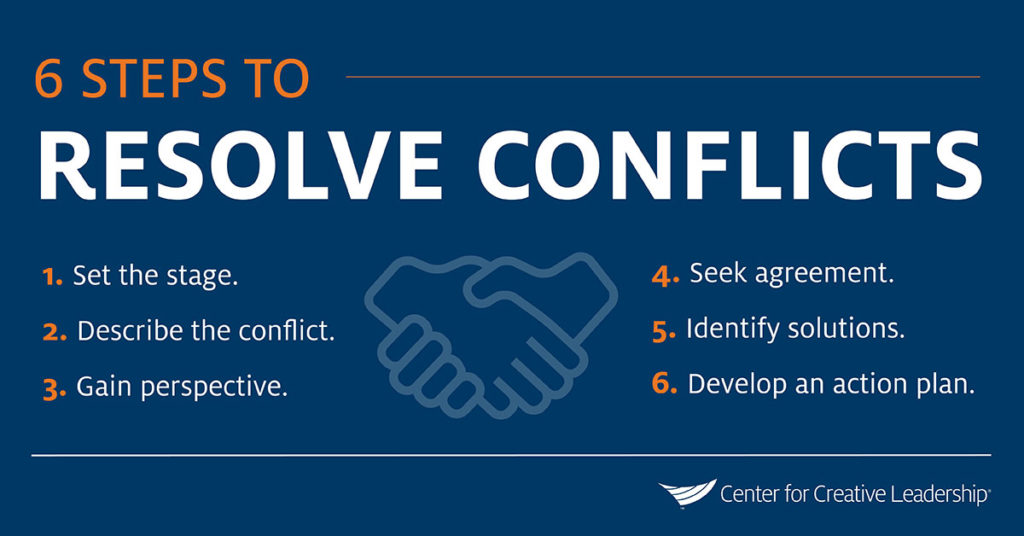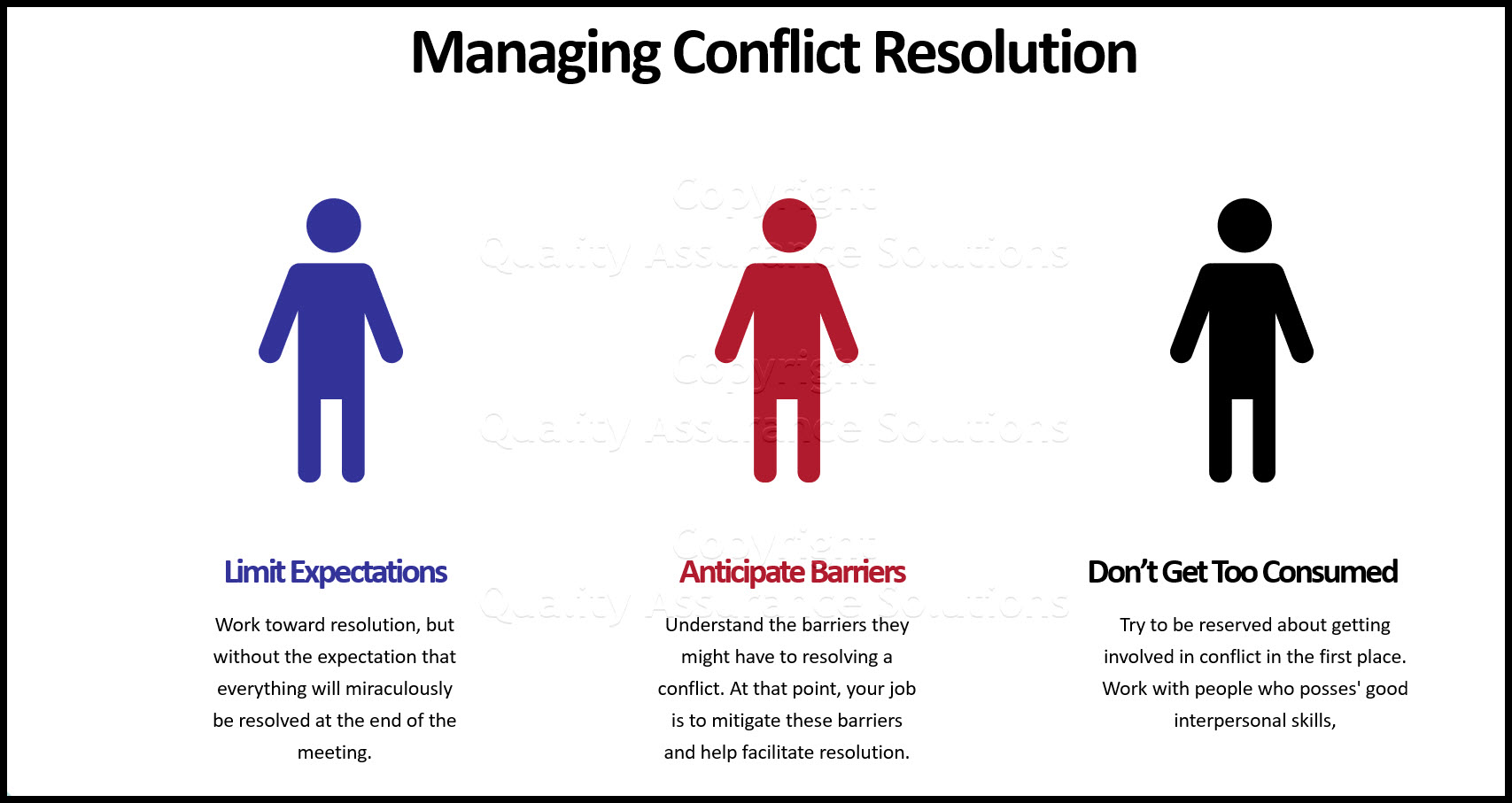Fabulous Info About How To Resolve Conflicts At Work

How to handle conflict in the workplace.
How to resolve conflicts at work. More tips for managing and resolving. How to handle workplace conflict. Then, give them the benefit of the doubt and ask them for their.
Take these 6 steps to resolve conflict. Finding out the source of a conflict is the key to solving it. Your people bring different perspectives.
Having studied conflict management and resolution over the past several years, the author outlines seven principles to help you work more effectively with difficult colleagues: Workplace conflicts can range from disagreement on how to move forward in a project to something as serious as distrust. Start by creating an atmosphere of openness, constructive criticism, and problem solving.
Before you begin communicating with the other party, fully. 7 workplace conflict examples (plus how to handle each one) by. Effective change can happen when a leader invests in.
Resolve team conflict before the fireworks get out of hand. Some conflicts are fueled by strong, heated, visible emotions, while others involve coldness; Here are some steps you can use to resolve conflict in your own workplace:
Conflict can oftentimes be resolved with compassion rather than defensiveness. Creating an open and supportive work environment starts with honest conversations. Nonverbal communication and conflict resolution.
Top tips to take away. This is an important element. According to experts, the following are some examples of common workplace conflicts, along with tips on how to resolve them:
Conflicts can show up in different ways. Focus on behavior and events, not on personalities. Nine out of 10 companies plan to implement.
Core skill 1: Employers ask interview questions about conflict and disagreements at work for a few reasons: Workplace conflicts can seem very complicated when in reality,.
How to resolve conflict in the workplace and why it matters. Consider if your actions or behavior could be causing any of the conflict. Start by evaluating the situation on your own.






/https://cdn.autonomous.ai/static/upload/images/new_post/6-must-have-strategies-for-resolving-conflicts-1344-1615798457246.jpg)










![How To Resolve Conflict [CONFLICT RESOLUTION]](https://smallbusinessify.com/wp-content/uploads/2020/09/How-To-Resolve-Conflict-..jpg)
